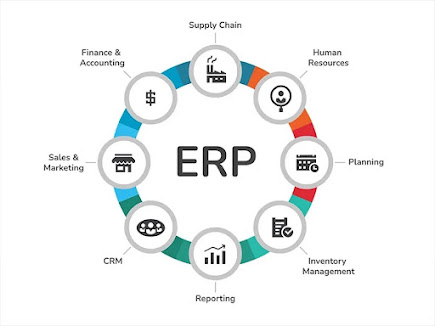ERP (Enterprise Resource Planning) software has revolutionized the way businesses operate in many industries, and accounting is no exception
With an ERP system, accounting tasks can be streamlined, automated, and optimized for maximum efficiency. This results in cost savings, improved accuracy, and better decision-making abilities for businesses. In this blog post, we'll explore the benefits of using an ERP system in accounting and answer some common questions about ERP software for our audience in Kuwait.
Benefits of ERP in Accounting
Improved Efficiency: With an ERP system, accounting tasks can be automated and streamlined. This means that manual data entry and other repetitive tasks can be eliminated, freeing up time for accountants to focus on more important tasks. In addition, an ERP system can provide real-time financial data, which means that accountants can access the information they need quickly and easily.
Cost Savings: An ERP system can help businesses save money by reducing the need for manual labor. By automating tasks, businesses can save on labor costs and minimize the risk of errors. In addition, an ERP system can help reduce inventory costs by optimizing inventory levels and minimizing waste.
Improved Accuracy: With an ERP system, accounting data can be entered once and shared across the organization. This means that data is less likely to be duplicated or entered incorrectly. In addition, an ERP system can provide real-time financial data, which means that accountants can access the information they need quickly and easily.
Better Decision-Making: With an ERP system, businesses can access real-time financial data and reports. This means that decision-makers can make informed decisions based on accurate data. In addition, an ERP system can provide insights into key performance indicators, such as revenue and profitability, which can help businesses identify areas for improvement.
FAQs about ERP in Accounting
What is an ERP system?
An ERP system is a software platform that integrates different business functions, including accounting, inventory management, and customer relationship management. An ERP system provides a unified view of a company's operations and helps streamline business processes.
How can an ERP system help with accounting tasks?
An ERP system can help automate accounting tasks, such as data entry and reconciliation. In addition, an ERP system can provide real-time financial data, which can help accountants make informed decisions.
How can an ERP system help with cost savings?
An ERP system can help reduce labor costs by automating tasks and minimizing the risk of errors. In addition, an ERP system can help reduce inventory costs by optimizing inventory levels and minimizing waste.
How can an ERP system improve accuracy?
An ERP system can help improve accuracy by eliminating the need for manual data entry and duplication. In addition, an ERP system can provide real-time financial data, which means that accountants can access the information they need quickly and easily.
How can an ERP system help with decision-making?
An ERP system can help with decision-making by providing real-time financial data and insights into key performance indicators. This means that decision-makers can make informed decisions based on accurate data.
Conclusion
In conclusion, an ERP system can provide many benefits for businesses in the accounting industry. By streamlining and automating accounting tasks, businesses can save time and money while improving accuracy and decision-making abilities. In addition, an ERP system can provide insights into key performance indicators, which can help businesses identify areas for improvement. If you're in the accounting industry in Kuwait, consider implementing an ERP system to improve your business operations.


Comments
Post a Comment